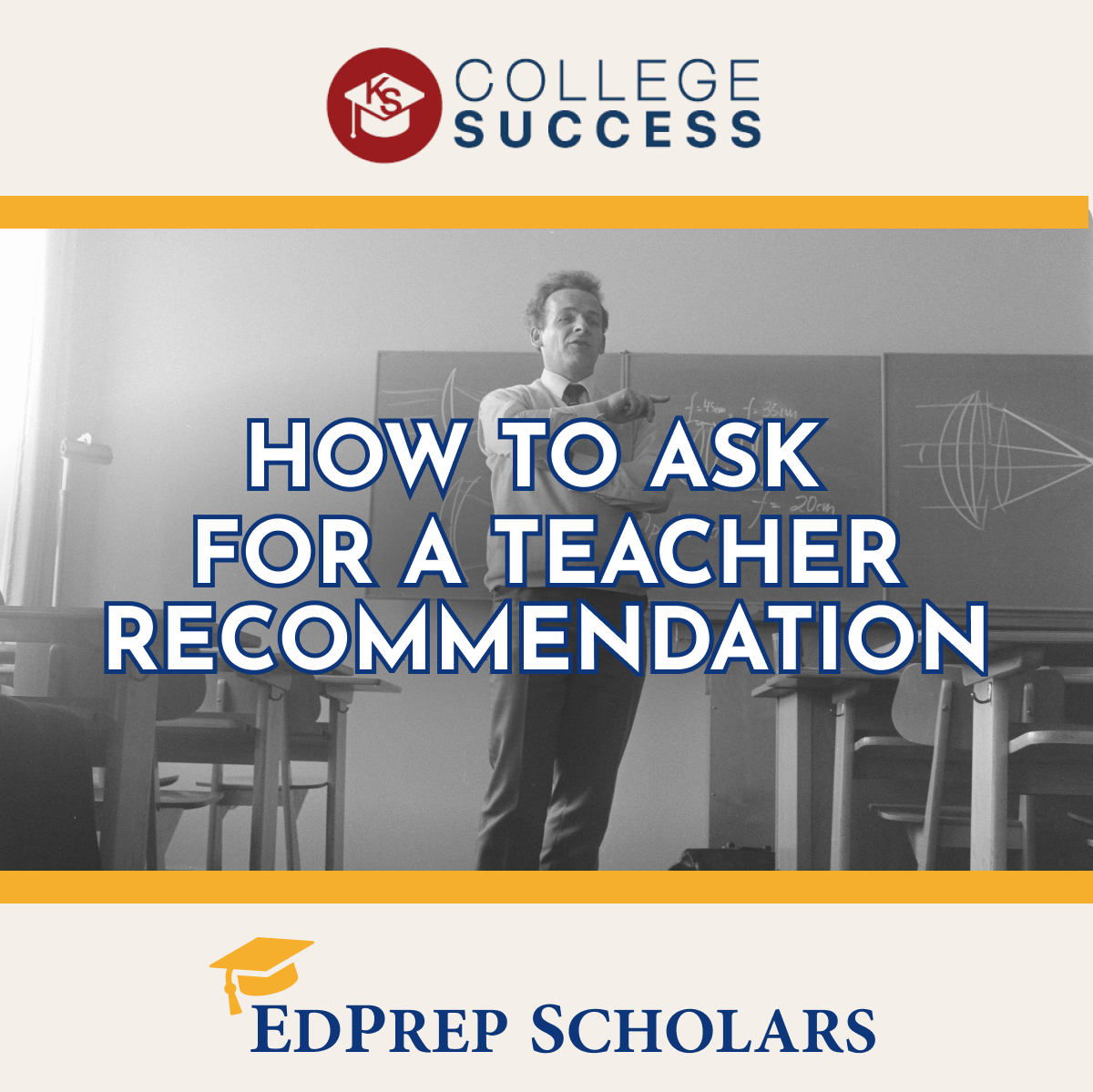
I work with my students to help them ensure their recommendations are stellar. This is made easier if you have a strategy for how to ask for the letter.
TIMING MATTERS
Certain teachers – especially “popular” ones who get lots of requests – may agree to write only a certain number of letters of recommendation. You want to be one of them! Asking earlier rather than later shows initiative. Giving your teachers more time and thoughtful input results in better recommendations. Both you and your teachers will remember details about your contributions to class, details you want your teachers to include in their letters of recommendation.
CHOOSING WISELY
In the college application process, there are things you can control and things you cannot control. One of the things you can control: choosing who will write your recommendations. You want to make a smart choice! Choose teachers who know you best. Choose teachers from different disciplines, but most importantly choose teachers with whom you have had real interactions. Ideally, choose teachers who taught you in 11th grade, but it’s fine if they taught you in 10th grade and even better if they taught you more than once.
THE ASKING
When you ask a teacher for a recommendation, draft a polite, professional email. The email needs to be more than one or two sentences and should include details about your experience in the teacher’s class, making it easy for them to write about you.
Key points to include in the email to your teacher:
- A formal opening.
- A clear request for a letter of recommendation – reminding them how excited you are about going to college and the opportunities it brings.
- The reason you are asking this teacher in particular, ie: something that really stuck with you.
- Details about your experience in the class, ie: favorite assignment or project.
- Appreciation for the time they are spending writing the letter.
- The date you need this recommendation by.
Here is a sample of an email you can send to a current teacher:

Here is a sample of an email you can send to a sophomore year teacher:

WHAT YOUR GUIDANCE COUNSELOR NEEDS FROM YOU NOW
Schedule monthly meetings even if they are just for a few minutes so your guidance counselor can get to know you better. Tell them how hard you are working in class and what activities are keeping you busy outside of class. You also need to send an email to the guidance counselor who will be writing a letter for you. This letter is just as important as letters of recommendation from teachers. In fact, this letter is arguably more important because all colleges require a Guidance Counselor letter, but not necessarily a teacher recommendation. The more information you provide the guidance counselor about you as a student, the better!
DEADLINES ARE NOT NEGOTIABLE
Knowing and completing your school’s requirements
Each school district or independent school will use a software platform to help students and guidance counselors track the student’s college application process. Among the most common are Naviance/Family Connection, Scoir, Overgrad, and MaiaLearning. Students must know which platform their school uses, how the platform works, and their school’s specific dates and deadlines. Be sure to upload all your information into your profile and check the progress of your applications weekly. Just submitting something is not enough – make sure you get a confirmation email.
CASE STUDY
Robert was an excellent student and captain of the soccer team. Sometimes, especially during the fall when he often daydreamed about having an undefeated soccer season, he could be a little absent-minded. Robert intended to apply Early Decision to a small college that had an excellent club soccer program. But he forgot to go into his Naviance account and match it to his Common Application account. As a result, his transcript and letter of recommendations could not be sent to the college by the Early Decision deadline and Robert was deferred to the Regular Decision round. He had to complete all of his other applications and wait until March to find out where he was accepted to college. At the end of the day, Robert was accepted to his original Early Decision choice, but he made the application process unnecessarily nail-biting because he forgot to pay close attention to the Naviance instructions.